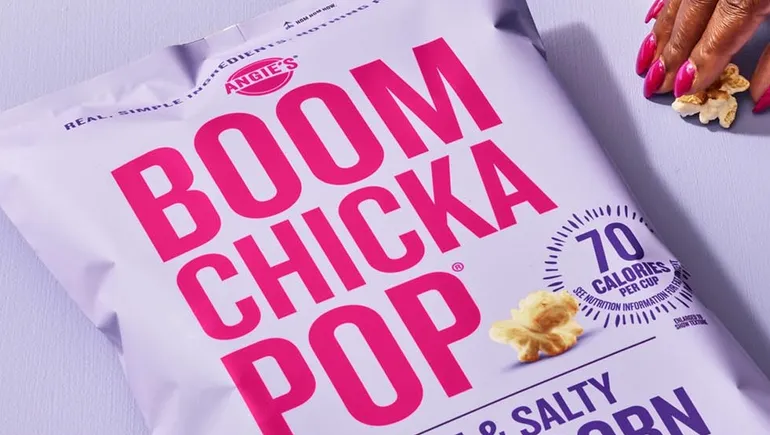Food giants see opportunity to profit from consumers using weight loss drugs

Food manufacturers are downplaying the negative impact that consumers using weight-loss drugs will have on their businesses, with a few seeing new opportunities to sell more popcorn, frozen meals, cereals and soups.
Weight-loss medications such as Ozempic and Wegovy have prompted concerns that people who take them will sharply cut back on buying food. A December study from Numerator found consumers using the GLP-1 medication for weight loss are spending less in grocery stores, with bakery and snacks among the hardest hit.
But food companies attending the Consumer Analyst Group of New York conference in Florida this week said their businesses are poised to capitalize on the changing buying habits of customers who are taking weight-loss drugs.
“We see opportunity within our unique snacking portfolio,” Tom McGough, co‐chief operating officer with Conagra Brands told Wall Street analysts.
He noted Numerator data showed that consumption of better-for-you frozen meals increased 8% in people taking weight-loss drugs. The reason, McGough said, is that frozen meals are portion controlled, provide valuable nutrition and are often high in protein — attributes many people taking the medications are looking for in their food.
“We have to be looking at it. We take this very seriously because this is a potential trend going forward.”

Gary Pilnick
CEO, WK Kellogg
At the same time, meat snacks are attractive because of their protein, while popcorn is a low-calorie, high-fiber treat. This could help companies such as Conagra, which makes Marie Callender’s frozen meals, Slim Jim meat snacks and ready-to-eat popcorn Angie’s Boomchickapop.
Gary Pilnick, the CEO of WK Kellogg, said the cereal giant views weight-loss medications as a “tailwind” for his company. He said cereal is low in fat and calories and that individuals who consume it typically get more nutrients, like vitamin D and fiber, than those who avoid it. People who eat the breakfast staple also tend to have less sodium and saturated fat intake than those who don’t eat cereal.
“It’s like in most any other potential consumer trend. We have to be looking at it,” Pilnick said in an interview. “We take this very seriously because this is a potential trend going forward.”
The question remains how big of a trend will it become? There is little clarity about how many consumers will take GLP-1 for weight loss, and for the ones that do, uncertainty looms as to how long they will continue to take the medication. If it proves to be a trend that lasts, food companies want to make sure they are positioned to benefit.

WK Kellogg Co’s new “better-for-you” cereal Eat Your Mouth Off.
Courtesy of WK Kellogg Co
Erin Lash, a director of consumer equity research at Morningstar, noted prior health trends, including gluten-free, dairy-free and the Adkins diet, “have not derailed these companies in the past,” largely because they appealed to a small number of customers and interest waned over time. Weight loss from GLP-1s is just the latest health and wellness trend to impact the food sector.
“Does this potentially afford [food manufacturers] a new type of product or variation of product that they can use to attract and open doors to a different customer cohort? That could be an opportunity,” Lash said.
An estimated one in three adults and one in six children are classified as overweight, according to the National Institute of Health. Obesity can cause a variety of health issues, the Centers for Disease Control and Prevention says, including increased risk of type 2 diabetes, high blood pressure and stroke. This puts pressure on food producers to include options in their portfolio for people looking to lose weight or to just eat healthier.
Jeff Harmening, the CEO of General Mills, said the Minnesota company is introducing new offerings to “meet evolving consumer weight management and nutrition needs.” He pointed to Super Mac with protein from Annie’s Mac and Cheese, “a protein-forward” Progresso soup and Betty Crocker cakes, cookies and brownies that are lower in sugar.
PepsiCo CEO Ramon Laguarta told analysts in August that the impact on his business has been “negligible” so far and that there are “obviously a lot of question marks.” Dirk Van de Put, Mondelēz International’s CEO, said in November that “the whole topic has been overblown,” and that “it’s really not a big concern for us at this stage.” He predicted a minimal impact on its volumes of about 0.5% to 1% in a decade.
Mondelēz, which owns brands like Oreo, Ritz and Tate’s Bake Shop, has data indicating that consumers remain tied to snacking in their active and busy lifestyles, Van de Put told Wall Street analysts this week. He also noted that more than 66% of consumers are looking for snacks that are portion-controlled, up 5% from last year.
“Taken together, these consumers’ insights give us confidence that snacking remains a great business,” Van de Put said.
Source: fooddive.com

